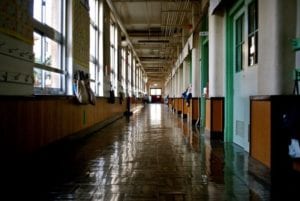The New York State Comptroller’s Office has ruled that the Lockport City School District’s facial recognition procurement process was neither transparent nor competitive, though it stopped short of saying that it was illegal. The decision represents the completion of an audit that began in March of 2021, and concerns the District’s use of facial recognition technology in public schools.

In that regard, the Lockport City security system has been a subject of controversy since its inception. The Lockport Board of Education started searching for a facial recognition provider back in 2016, bringing on Orchard Park’s Tony Olivo as a consultant to help lead the process. Olivo issued a call for software vendors in June of that same year, eventually leading to a software licensing agreement between the school district and SN Technologies. The agreement was signed in June of 2017, and covers facial recognition for the Lockport High School.
The problem, according to the Lockport parent who requested the audit, is that the Board of Education already had a provider lined up before soliciting bids. Olivo’s request for information only gave vendors four days to respond, and the window for a hardware solicitation in 2017 was even shorter, giving interested parties only a day to put together a proposal. SN Technologies was the only company that had enough notice to meet the second deadline, and likely benefited from the fact that Olivo’s Orchard Park was listed as a partner of the company.
With that in mind, the auditors criticized the School District for using inaccurate and misleading language when describing its procurement process. They determined that the process was not competitive, despite the claims that Lockport made to the contrary.
However, the auditors noted that there was nothing inherently illegal about the way Lockport did business. The Board of Education is not required to conduct a competitive search, and is allowed to piggyback off of other district contracts when purchasing technology. As a result, Lockport still adhered to the letter of the law when obtaining professional services, even if some of its practices were frowned upon in the audit.
In addition to its questionable procurement decision, the Board of Education was asked to account for a February 2018 policy that stated that any security providers looking to do business with Lockport needed to make sure that their tech was compatible with SN Technologies’ AEGIS facial recognition software. The policy effectively narrowed the search field to SN Technologies for future contracts, though Lockport administrators argued that it was more efficient to standardize its technology once a partnership had been established.
Of course, the question is a moot point for the time being. New York lawmakers banned the use of facial recognition in schools in July of 2020, and then-Governor Andrew Cuomo signed the bill in December of that year. The law prevents the use of the tech until July of 2022, or until the state Department of Education completes a privacy impact assessment for the technology.
The Lockport system went live with roughly 300 cameras in January of 2020, while the $4.27 million it paid for the system has been reimbursed by the state. The New York Civil Liberties Union and a group of parents sued the school for privacy violations, though the lawsuit was dismissed after a judge ruled that the 2020 ban made the action redundant. Lockport was using facial recognition to identify people on watchlists, and to try to spot people carrying weapons.
Source: The Buffalo News
–
April 19, 2022 – by Eric Weiss








Follow Us